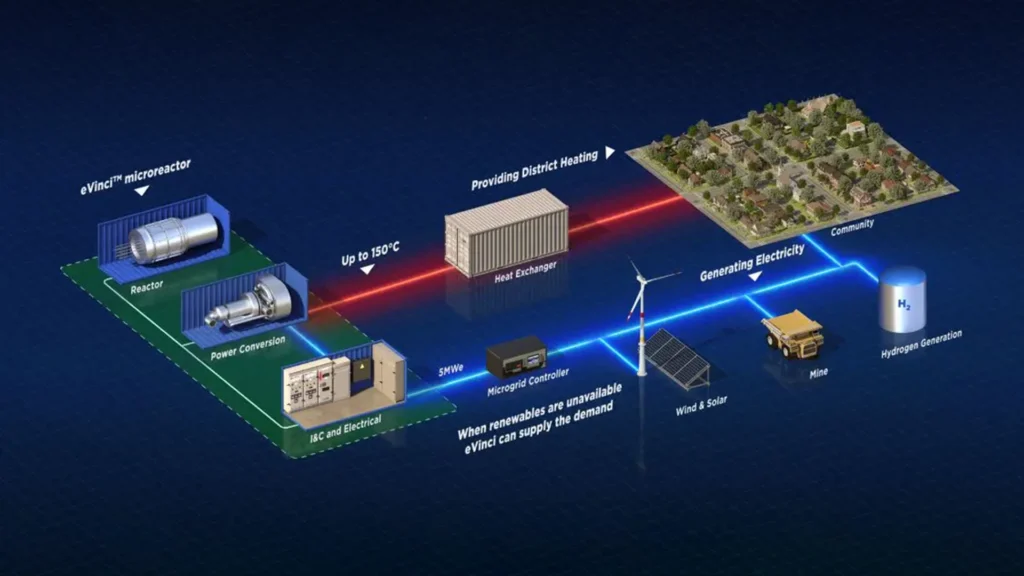
April 9, 2024
Ben Townsend, News Director
The Nome Joint Utility System (NJUS) will host a public discussion Wednesday, April 17 to provide information on the potential benefits of constructing a nuclear microreactor in Nome. This discussion seeks to build on a previous hearing held in August 2022 to provide further clarity on the impacts installing such a system would have on the community as well as the environment.
Representatives from the Westinghouse Energy Company as well as the UAF Alaska Center for Energy and Power will be available for questions at the public discussion being held at Old St. Joe’s from 2-4 p.m. and 6-8 p.m.
A proposed system developed by Westinghouse could offer significant benefits to Nome, with a 5 megawatt (MW) microreactor being sufficient to accommodate the town’s current electrical needs that are at this time served primarily by diesel electric engines. Additionally, the heat generated by the microreactor has the potential to create 10 MW of nuclear powered district heating, which could be used to heat water to be distributed throughout the city. A district heating setup is already in use in Nome, although it is served by diesel engines.
NJUS Assistant Manager Ken Morton emphasizes the importance of safety, ensuring there is a plan for the long term use and storage of nuclear material, and economic feasibility in evaluating the technology.
“For me, the technology has to be safe. There has to be a method of addressing the long term considerations of the fuel and it has to be economically feasible. If it’s not economically feasible, frankly, it’s not a conversation that we should pursue too much further into the future.” Morton said.
One of the key advantages of microreactor technology, according to Morton, is its potential to stabilize electricity costs for the community, providing a more predictable budgeting environment for businesses and residents alike.
“One of the things we’re trying to address is the cost of diesel fuel is different year to year, making it challenging for people to budget year to year.” Morton said, adding that “This technology essentially has the ability to fix the cost of electricity for the foreseeable future.”
If it were to move forward, implementation of such a system would likely not occur until the end of the decade. Members of the public are welcome to learn more about the system and voice their opinions at the discussion.







